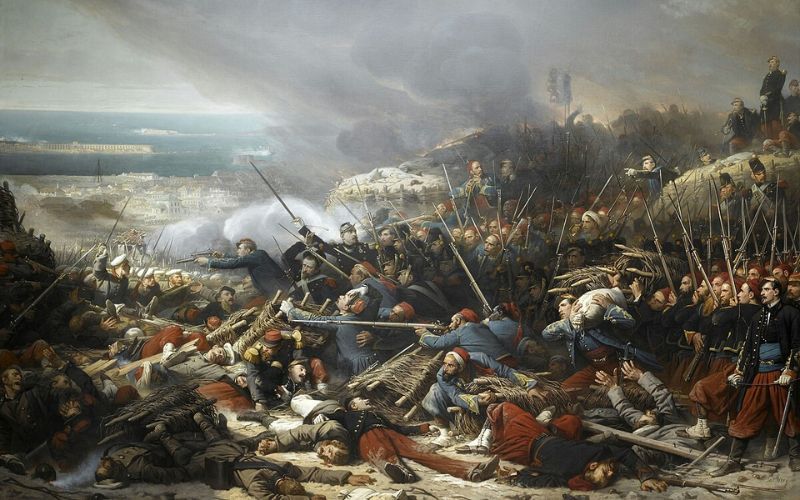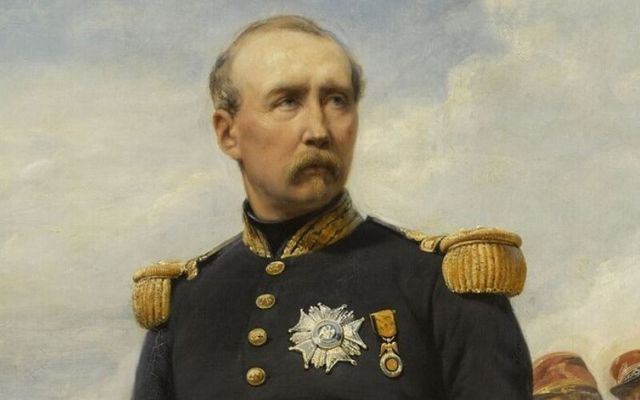On January 30, 1879, Patrice de MacMahon retired as president of France.
MacMahon’s ancestors were Lords of Corcu Baiscind in Co Clare, descended from Muirchertach Ua Briain, a High King of Ireland. They left in 1691 after the family supported King James. Like many of the Wild Geese, the MacMahon family would have a long history of serving in the French military.
Patrice was born on June 13, 1808, in Autun, Burgundy, at the Chateau de Sully.
Patrice’s father, Maurice Francis, was also a soldier in the French army. In 1790, Maurice’s royalist politics nearly caused his head to become separated from his body, but he managed to survive until the Bourbon restoration. Patrice was born on June 13, 1808, at Autumn in Burgundy. He attended the military academy at Saint-Cyr, and in 1827 he joined the French army.
MacMahon served in Algeria until 1854. His performance there moved him steadily through the ranks; when the Crimean War began, MacMahon had been promoted to general and transferred to the French army at the front. He was given command of the 1st Infantry Division of the 2nd Orient Army Corps.
On September 8, 1855, he helped to plan -- and personally led -- a successful assault on the Russian fortress of Malakoff at Sebastopol. The plan included what was possibly the first use of synchronized watches in a military attack.

Combat dans la gorge de Malakoff. (Adolphe Yvon / Public Domain)
After the attack took the fort, MacMahon received a message from the French commander-in-chief warning him that the Russians had mined the fort. He advised MacMahon to withdraw, but MacMahon decided to risk the danger and remain in the fort. Sebastopol fell shortly after this victory, and the war was soon over.
General MacMahon next commanded French troops against the Austrians in the Piedmont. Here, he won his greatest fame on June 4, 1859, when he help defeat the Austrians at the Battle of Magenta.
Napoleon III conferred on MacMahon the title duc de Magenta for this victory. MacMahon also performed well at the battle of Solferino on June 24. It is said that when news of MacMahon’s victory at Magenta reached Ireland, bonfires were lit on hilltops in celebration, showing how much pride the native Irish took in their exiled sons.
MacMahon was given command of the 1st Army Corps during the Franco-Prussian War. He was heavily outnumbered and defeated at Worth and Sedan as the Prussian army overwhelmed the French in six weeks. MacMahon was wounded and carried from the field at Sedan and emerged from the debacle with his reputation intact. He later headed an army that crushed the Commune of Paris in 1871.
In May 1873, MacMahon was elected president of the Republic. He was president for six fateful years in the history of France. Republicans, royalists, and other factions plotted and fought on all sides, but MacMahon brought France through this perilous period and helped establish a permanent democratic government.
He retired to private life in 1879. Patrice MacMahon, Duke of Magenta, died on October 17, 1893.
(Copyright, 2010, Joseph Gannon thewildgeese.irish)
This article was submitted to the IrishCentral contributors network by a member of the global Irish community. To become an IrishCentral contributor click here.




Comments